Interview with Tim McCaskell, Author of “Queer Progress: From Homophobia to Homonationalism.”
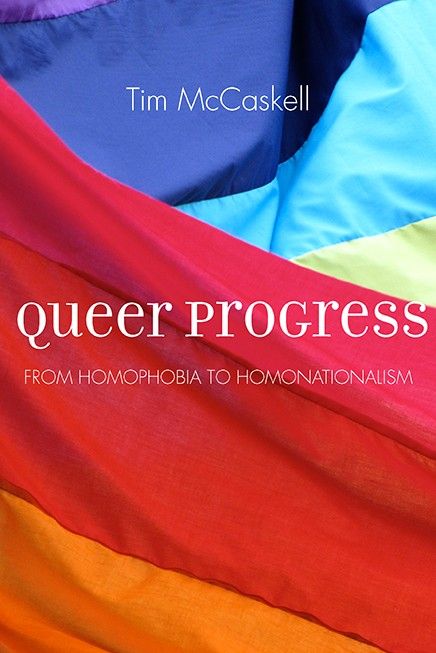
A memoir and analysis of early Toronto gay and lesbian liberation politics, HIV/AIDS activism, economic and social changes, identity politics, and the rise of neoliberalism from 1974 to 2014. | TQ222
“We have become ordinary. We are no longer dangerous nor do we carry the germ of a utopian future; we are the mundane present.”Tim McCaskell, "Queer Progress" (p. 455)
Tim McCaskell’s book, “Queer Progress: From Homophobia to Homonationalism,” documents 50 years of queer history centred in Toronto and ending in 2014 with Toronto World Pride 2014.
In this episode of the Think Queerly Podcast, we talk about the book as a way of understanding where we are now in 2022, and where things are headed socially and politically from an intersectional viewpoint.
Watch or listen to the episode:
Main Discussion Points of this Episode:
McCaskell’s conclusions written in 2014 were prophetic for later events in Toronto and elsewhere.
McCaskell suggested that the success of gay rights and the embrace of gay rights by the state happened at the same time as social inequalities had become more acute than they had been in the 1970s. This resulted in greater fragmentation of the community because we were no longer in the same boat.
When Queer Progress was first printed, Black Lives Matter famously halted the 2016 Pride Parade because of a fundamental disagreement between the community and Pride Toronto about the participation of uniformed police officers in the parade.
The many Contradictions of the word, “Queer.”
I ask McCaskell to explain why he used Jasbir Puar’s concept of homonationalism as the title for the book.
“Queer is also rife with contradictions. It is an anti-identity and simultaneously rejects and fetishizes identity. It so values the role of the outsider that, rather than seeing less radical, more normative lesbians and gay men as a constituency to be organized or won over, it more often uses them as a foil to highlight its own political righteousness. Everyone wants to be a radical activist, but no one wants to organize… Queer represents a rejection of the status quo, but it has been so far unable to imagine a solution to it, and its politics tends to be one of gestures rather than organizing towards concrete goals.”"Queer Progress" (p. 469)
Should Pride be a party or a protest?
McCaskell reflects on the conundrum he encountered when he was working with Queers Against Israeli Apartheid and how Pride Toronto attempted to ban the group from the 2014 Pride parade.
The Pride Committee argued that Pride should be about sexuality, being outrageous, and celebrating sex — not about politics. In the early gay liberation of the ’70s in Toronto, writing about or printing depictions of sex would get you arrested.
“How did this increasing tolerance for sex lead to a decreasing tolerance for political talk about how society is put together?”
The dangers of homonationalism
The typography of the Queer community in Toronto is dramatically different now from what it was in the 1970s.
Today, almost every group is dependent on government funding. In early liberation, groups were self-sufficient, dependent on individual donations, and primarily volunteer-driven.
“The danger of homonationalism is that if you have become dependent on the state, what happens if the state changes its mind?”
For example, we are not in a strong position to combat anti-LGBTQ hatred and the demonization of trans kids by the Evangelical right-wing in the United States. We’ve come to depend on friends in power instead of our own community members.
Many of those in power are now working against our rights and freedoms.
“If there is one thing we can say definitively, it is that prolonged economic crisis leads to political crisis, and prolonged political crisis foster authoritarianism. In periods of political crisis, elites often opt for demagogues and scapegoats to deflect public anger.”"Queer Progress" (p. 467)
The politics of urgency
We talk about the difference in the kind of energy and urgency behind the politics and organizing of the 1970s (no rights; police brutality) and 1980s (HIV/AIDS) to the present day. However, urgency is not distributed as equally today due to factors like location, economics, and race.
McCaskell suggests a thought experiment to examine the dynamics of community versus individualism.
When the police raided the Baths in Toronto in 1981, there was a massive reaction with nightly street protests, organizing, money collected to pay for lawyers, etc. However, what would happen today if the government were to close down Grindr and Scruff?
Would people react in the same way as they did in 1981?
Much of the book’s narrative is critical of neoliberalism and how that leaves people out in the cold due to government inaction.
The accomplishment of neoliberalism has concentrated wealth in fewer hands.
When wealth is concentrated in fewer hands, power is then concentrated in even fewer hands. Democracy is predicated on the fact that people are equal, e.g., everyone has a vote, etc. When people are demonstrably not equal, then democracy makes less sense, which makes it possible for people like Donald Trump to come to power.
We see the rise of more authoritarian movements when people are looking for other solutions when democracy seems to no longer be working. This leads to greater intolerance as a result of greater inequality.
“Neo-liberalism has also changed social values. Unmoored from any notion of social good, the liberal values we promoted in our struggle against tradition have been transformed into something resembling a destructive psychosis. Individualism justifies unlimited greed and selfishness. When rationalism is stripped of empathy, success can only be measured by dollars accumulated, despite its destruction of people and the planet. This shift in values affects all of us.”"Queer Progress" (p. 464f.)
As a society, we are seemingly currently incapable of offering a real alternative. We need an analysis that looks a social power and privilege, in which looking at identity doesn’t get caught up in those correlations.
Otherwise, the argument gets stuck in a paradigm of “my group versus your group’ and serves more the interest of those who have the greatest share of the pie versus those who don’t have a share at all.
How do we facilitate uncomfortable conversations between identity and class?
Change doesn’t happen without discomfort. If you’re not resilient, you risk becoming fragile. You’re not always right and need to recognize that truth with humility. McCaskell offers a facilitation framework to increase understanding by listening and sharing commonalities.
McCaskell’s personal triumph and how activism can change the world.
Tim recalls the creation of the Trillium drug program — AIDS Action Now’s (AAN) gift to Ontario and the health of every person in the province.
Tim McCaskell Biography
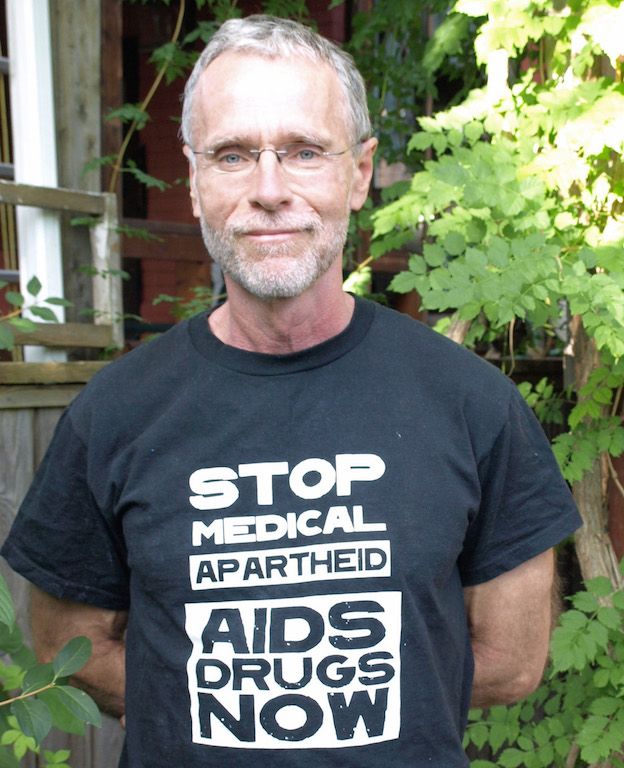
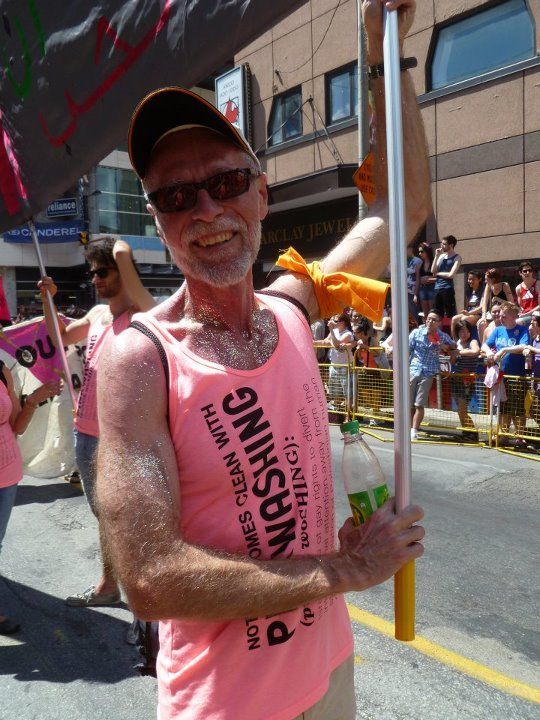
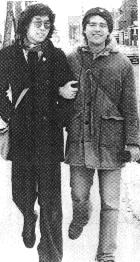
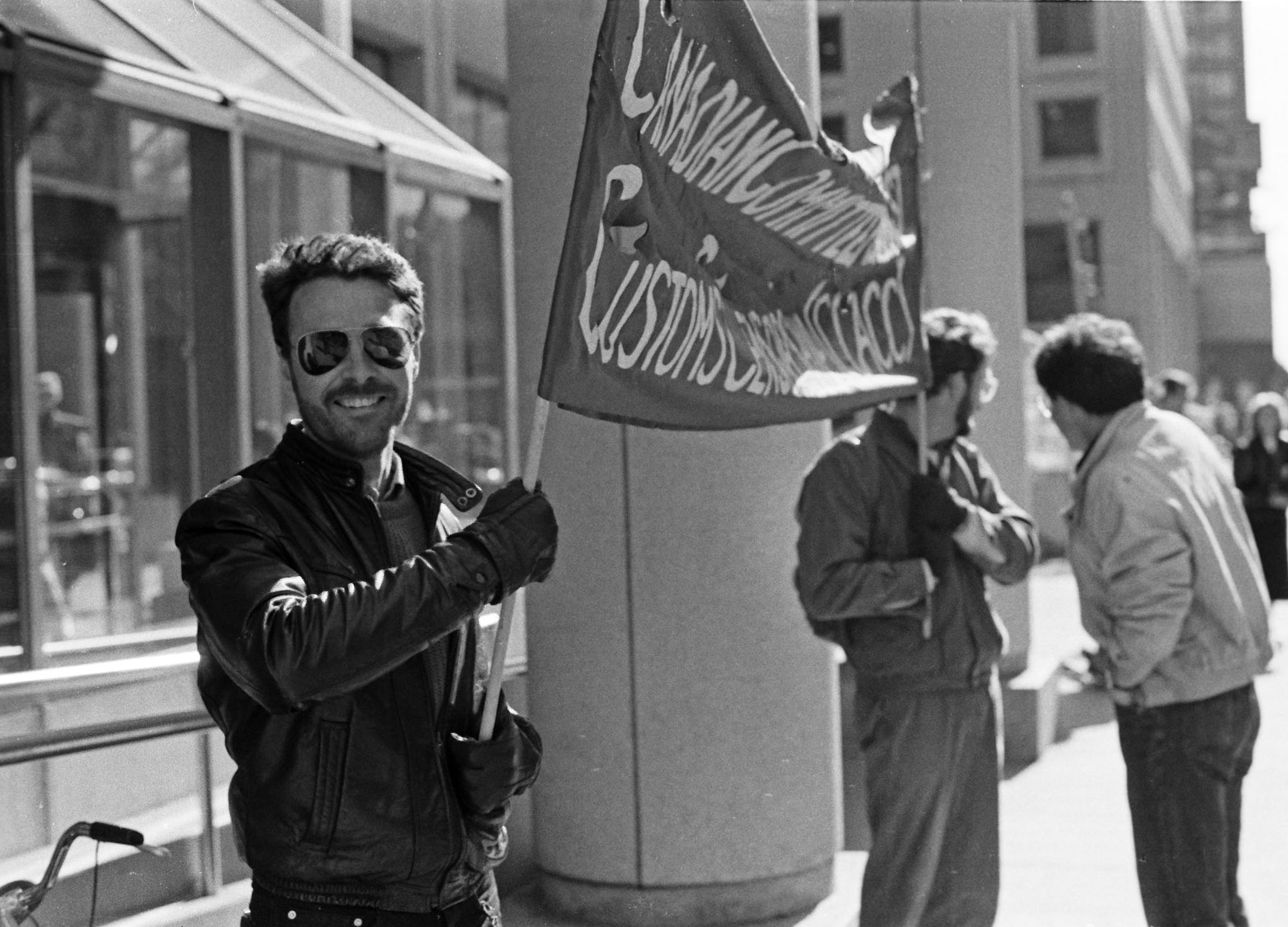
Tim McCaskell is a long-time Toronto writer, activist, and educator.
He was a collective member of The Body Politic, Canada’s first national magazine for Lesbian and Gay Liberation from 1974 to 1986, chair of the Public Action Committee of the Right to Privacy Committee which fought back against police raids on gay baths in Toronto in the early 1980s, and part of the Simon Nkodi Anti-Apartheid Committee: Lesbians and Gays Against Apartheid in the late 80s.
He was a founding member of AIDS ACTION NOW!, the activist group which won access to experimental treatments and funding for medications in the 1990s, and Queers Against Israeli Apartheid after 2010. He is presently part of the Ontario Working Group on Criminal Law and HIV Exposure.
For more than twenty years, McCaskell worked at the Toronto Board of Education, developing and delivering programs on racism, homophobia and sexual harassment for students and teachers. He received the City of Toronto Award of Merit for his human rights work in 1996.
In 2005, he published Race To Equity: Disrupting Educational Inequality, a history of the struggle for equity in Toronto public schools. His second book, Queer Progress: From Homophobia to Homonationalism, was published in 2016. He was a contributor to and co-editor of Any Other Way: How Toronto Got Queer, a shortlist finalist for the Toronto Book Awards in 2017. His video workshop, Neoliberalism as Water Balloon, has had over 200,000 hits on Vimeo and YouTube and has been translated into Turkish and Chinese.
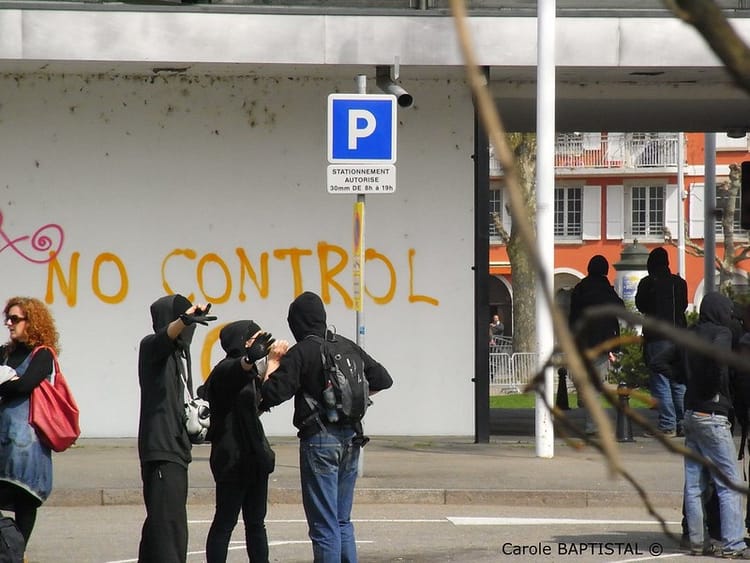




Member discussion